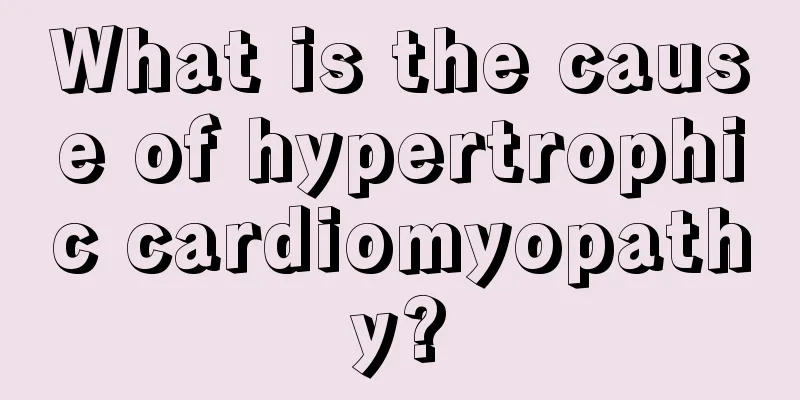What is the cause of hypertrophic cardiomyopathy?

|
When it comes to hypertrophic cardiomyopathy, we need to pay attention to scientific knowledge and understanding, because these diseases actually pose a relatively toxic threat to human health. Common causes include genetic factors, and endocrine disorders can also have an impact on it. 1. Causes 1. Genetics Multiple people in a family may be affected, suggesting that it is related to genetics. 2. Endocrine disorders Many patients with pheochromocytoma have coexisting hypertrophic cardiomyopathy. Intravenous infusion of large amounts of norepinephrine in humans can cause myocardial necrosis. Animal experiments have shown that intravenous infusion of catecholamines can cause myocardial hypertrophy. Therefore, some people believe that hypertrophic cardiomyopathy is caused by endocrine disorders. 2. Clinical manifestations There are significant differences in the disease between men and women. Most symptoms appear between the ages of 30 and 40. As age increases, the symptoms become more obvious. The main symptoms include dyspnea, exertional dyspnea, severe orthopnea or paroxysmal nocturnal dyspnea. Angina pectoris: often typical angina pectoris, with onset after exertion. If the chest pain persists for a long time, sublingual nitroglycerin is not only ineffective but may also make the condition worse. Syncope and dizziness; often occur when tired. It is caused by a drop in blood pressure. When tachycardia or bradycardia occurs, it can also cause syncope and dizziness. Palpitations: The patient feels that the heart is beating strongly, especially when lying on the left side, which may be caused by arrhythmia or changes in heart function. Treatment Hypertrophic cardiomyopathy develops slowly and has a good prognosis, but it can cause sudden death due to arrhythmias. In daily life, you should pay attention to avoid overwork and excessive mental stress. Beta-blockers and propranolol can reduce myocardial contractility, alleviate left ventricular outflow tract obstruction, improve left ventricular wall compliance and left ventricular filling, and also have anti-arrhythmic effects. Surgical treatment: If the pressure gradient is >60mmHg and drug treatment is ineffective, surgical treatment can be used. Hypertrophic muscle resection is possible. Patients with severe mitral regurgitation can undergo mitral valve replacement. |
<<: Can photochromic glasses protect against ultraviolet rays?
>>: Can Moneywort treat urinary tract infection?
Recommend
What are the benefits of adding salt to toothpaste
We use toothpaste to brush our teeth every day. T...
Treatment recommendations for advanced gastric cancer in the elderly
We all know that if we discover a disease in the ...
Why do we need to observe confinement after childbirth?
Getting pregnant and having a baby is a big event...
What are the early symptoms of liver cancer? Introduction to the scientific diagnostic criteria for liver cancer
Liver cancer is difficult to treat because its ea...
Colors that protect eyesight
Young people nowadays cannot live without compute...
Five benefits of drinking red wine before bed
There are many brands of red wine on the market, ...
Why does the left side of my stomach hurt? Here’s the reason
In life, many people experience pain on the left ...
How to check osteosarcoma
Examination is very important for osteosarcoma. E...
How much does melanoma treatment cost
How much does it cost to treat melanoma? This is ...
Sciatica, what are the common causes?
Sciatica can cause symptoms of lower back pain an...
What causes bloating and vomiting?
If you inhale too much air into your stomach with...
Detailed analysis of general treatment methods for melanoma
In recent years, many people will suffer from mel...
How to treat the sequelae of masturbation
Regarding masturbation, it happens more often amo...
Chinese medicine can cure brain cancer headache
At present in our country, due to the continuous ...
What is the reason for a lot of dirt in the nose?
In recent years, our air quality has been getting...









